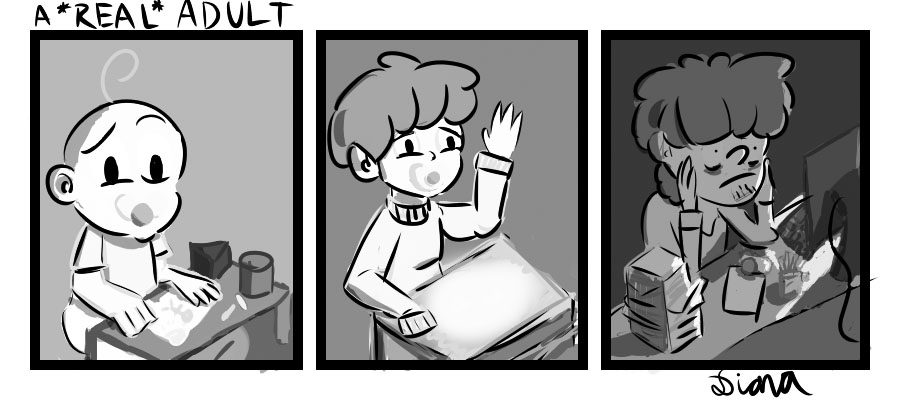The transition out of high school proves to be difficult for seniors
January 27, 2017
Everyone is familiar with the college mania that surrounds students in our highly competitive area, especially seniors. Although it is easy to get swept up in the madness of college applications and school-related stress, it can be helpful to think about the steps that come after college acceptance or other plans for after high school.
Accordingly, many seniors feel pressure when applying to college, and the idea of what comes after the applications are sent out is often not on their minds.
“There was a lot of pressure [to excel in school], especially living in a super competitive area, and going to a competitive school,” senior Daniel Mitchell said. “But I try not to focus on that pressure too much and just kind of do what I want to do.”
In high school, it can be easier to navigate the ups and downs of life because of the support systems provided by the school and family members.
“We have a lot of safety nets here when you live at home with a parent. [Also], we have a lot of counselors who want to help you,” school counselor Alice Robertson said. “There [are] people on a college campus that do want to help you, but I think you have to seek them out more.”
However, when it comes to life after high school, those safety nets are not always there. It can be hard for students to adjust to the social and logistical aspects of living away from home for the first time, such as being around a group of entirely new people, sharing a room and living with other students full-time.
“[I think the hardest transition] is probably more [around] the logistics of college that are really tough, and for many students it’s the first time that they’ve really left home and been on their own,” Robertson said.
Some students feel frightened or underprepared about living away from their families.
“I don’t feel prepared to live on my own in college,” senior Alice Wang said. “I guess I’ll just learn as it comes, but right now I feel like I still rely on my parents a lot.”
Additionally, it can be difficult to learn how to handle this transition, as most teachers and counselors focus more on the academic aspect of life after high school.
“I don’t think teachers and counselors help a lot with the living aspect,” Wang said. “I think most of them are just concerned with doing well in school and succeeding instead of learning how to cook food or something.”
Also, it can be hard to transition to college academically, because the structure of many classes in high school do not mirror those in college. Additionally, some teachers exert more control over their classes than professors would in a college setting.
“[Some teachers are] controlling in class [and] don’t really let you branch out and make your own decisions [regarding] when you should be studying or doing your homework, because in college it’s going to be on us to decide what we want to do,” Mitchell said.
There are some strategies that teachers can employ to further ready students for future endeavors.
“[It would help prepare me for college if] classes [were structured] closer along the lines of what a college class is,” Mitchell said. “[For example], a lot of my teachers don’t require you to do your homework; [they say that] you should just do it for practice if you need to do it, [but] they don’t collect it for a grade. I think that helps me to find my motivation to do my work and try to learn, not try to get a good grade.”
In addition, the requirements set up by the county help students enter college with academic confidence.
“We have graduation requirements in Fairfax County that are beyond the state requirements, so I think that our students are very well prepared when they go to school academically,” Robertson said.
College is scary for everyone. It can be a very difficult process to apply to college, and actually living away from home is a terrifying prospect for some. However, if students are given more freedom to make adult decisions while still in high school, they will be more prepared to succeed in the future.


